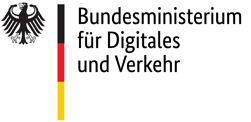Ships have to become more efficient
On its 75th session on 20 November 2020, IMO's Maritime Environment Protection Committee MEPC adopted several measures to further reduce the world's merchant fleet's fuel consumption and thereby its CO2 emissions. For the first time, these provisions include existing ships as well.
With two measures MEPC wants to make sea-going ships more efficient, and therefore more environmentally friendly:
- All ships of 5000 GT and more have to meet certain efficiency standards with the new EEXI (Energy Efficiency Existing Ship Index). In order to achieve this, ship operators have to implement technical means to significantly lower their fuel consumption and thereby the CO2 emissions of their ships. Already since 2013, a similar requirement, the EEDI (Energy Efficiency Design Index), has been in place for existing ships. The EEXI engages nearly the complete trading global merchant fleet to reduce their current CO2 emissions by up to 50 % depending on the ship type from 2023.
- Moreover, the IMO requires that from 2023 the ship operations are aligned with stricter CO2 emission levels. Every ship receives an assessment of its CO2 intensity, which is divided into five categories from A to E. This categorization is done with the CII (Carbon Intensity Indicator). A similar assessment is already known from electronic devices and cars. Based on the Carbon Intensity Indicator CII, shipping companies whose ships are assessed as class D or E in three in consecutive years have to develop a list of measures to reduce CO2 sufficient to return to class C. This instrument is also meant to increase pressure on ship operators to deploy only their most efficient ships on the market. In addition, the CII creates transparency for all market participants and a comparable data pool.
Currently, international working groups develop guidelines for the implementation of these measures to ensure the starting date 1st January 2023. Furthermore, the IMO panels plan further measures to reduce emissions from shipping such as alternative fuels, emission trade, as well as a CO2-free maritime transport of goods in the long run. The MEPC has not made any concrete decisions to this regard, however.


